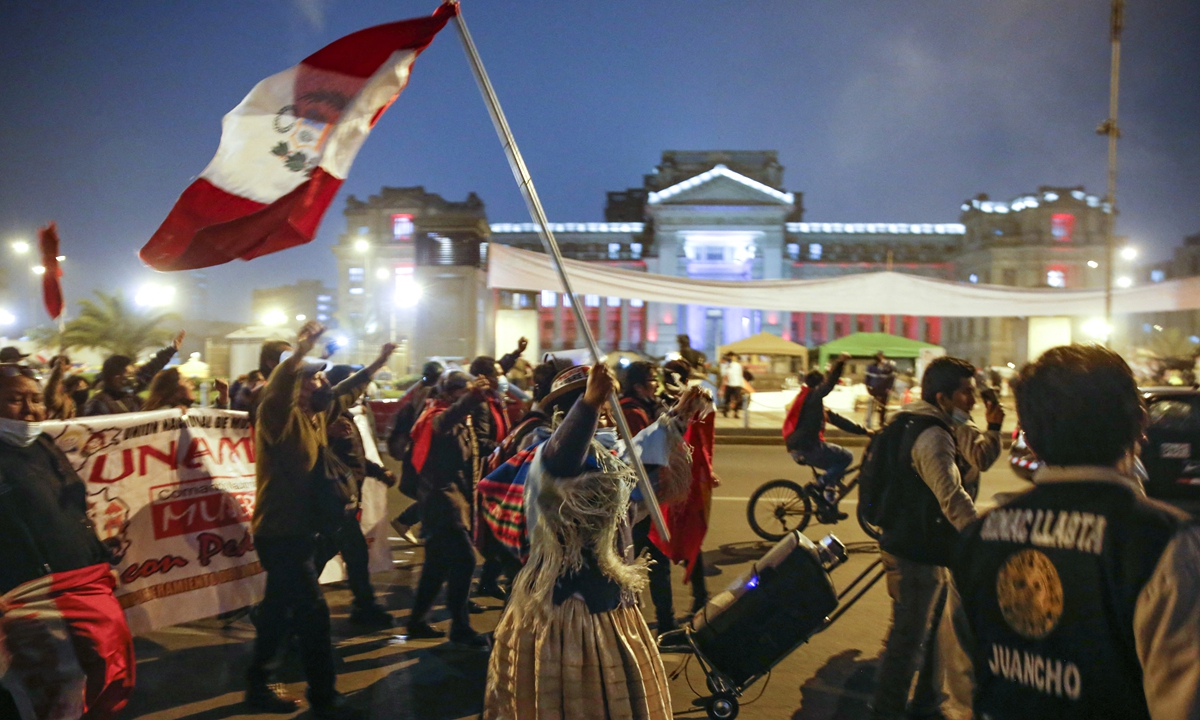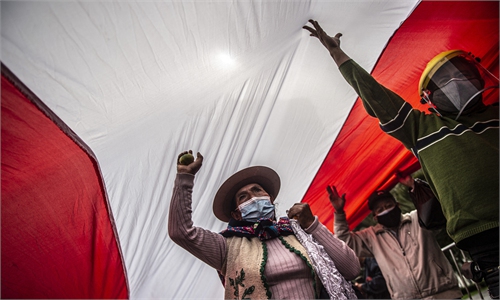Rural schoolteacher Pedro Castillo wins as ‘man of the people’
‘The first poor president of Peru’

Supporters of leftist schoolteacher Pedro Castillo celebrate in downtown Lima following the official proclamation of him as Peru's president-elect on Monday. Photo: AFP
Rural schoolteacher Pedro Castillo on Monday was declared Peru's president-elect, making him the country's first leader with no ties to the elites that have governed the Andean country for decades.
The 51-year-old far-left trade unionist was largely unknown until he led a national strike four years ago that forced the then-government to agree to pay rise demands.
He was born to peasants in the tiny village of Puna in the historic Cajamarca region where he has worked as a teacher for 24 years.
He grew up helping his parents with farm work, and as a child, he walked several kilometers to school.
Today, he is rarely without the trademark white, wide-brimmed hat of his beloved Cajamarca, where the last Inca emperor Atahualpa was assassinated on the main square in 1533 by Spanish conquistadores. Castillo likes to don a poncho and shoes made of recycled tires, and traveled on horseback for much of his presidential campaign as he vocalized the frustration of struggling Peruvians and cast himself as a man of the people.
"No more poor people in a rich country," he said as he campaigned for the Peru Libre party. He has said he would renounce his presidential salary and continue living on his teacher earnings, and described himself as "a man of work, a man of faith, a man of hope."
Castillo, said analyst Hugo Otero, is "the first poor president of Peru."
In April, Castillo surprised many by taking the lead in the race to become Peru's fifth president in three years, edging out 17 other candidates.
He then faced off against right-wing candidate Keiko Fujimori in the runoff, promising radical change to improve the lot of Peruvians contending with a recession worsened by the pandemic, rising unemployment and poverty.
One thing unlikely to change under a Castillo presidency is the Peruvian state's socially conservative character: He is Catholic and vehemently opposed to gay marriage, elective abortion and euthanasia.
He frequently quotes from the Bible to drive home his points, and at his two-story brick home in the hamlet of Chugur in Cajamarca hangs a picture of Jesus surrounded by sheep and a caption, in English, "Jehovah is my shepherd."
Castillo has targeted creating a million jobs in a year, and said Peru's mining and hydrocarbon riches "must be nationalized."
Peru is a large producer of copper, gold, silver, lead and zinc, and mining brings in 10 percent of national GDP and a fifth of company taxes.
He has promised public investment to reactivate the economy through infrastructure projects, public procurement from small businesses, and to "curb imports that affect the national industry and peasantry."
But he has also sought to dispel fears that "we are going to take your wine farm, that we are going to take your house, your property."

